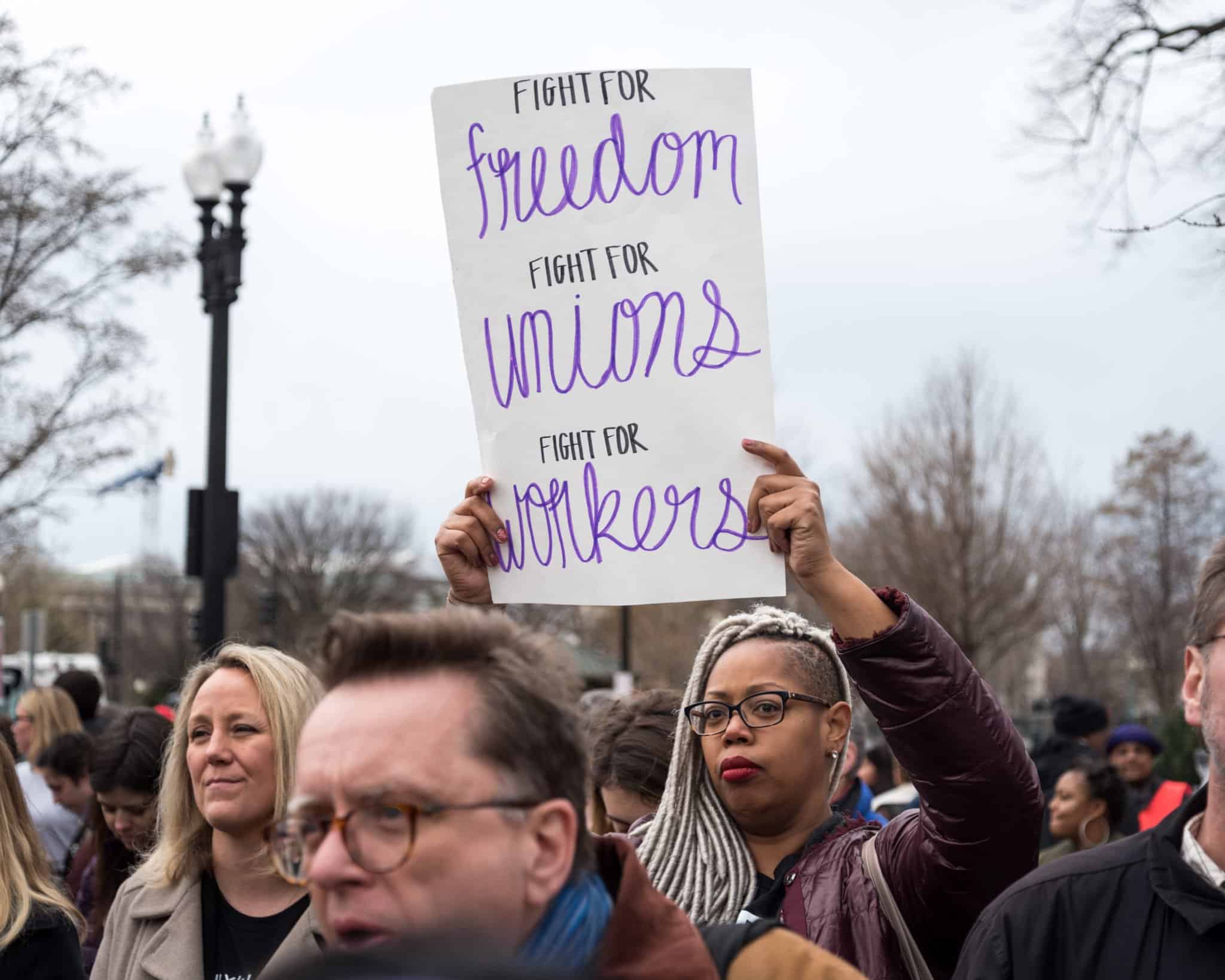
Esther Ritchin is a student at Harvard Law School.
In today’s news and commentary, AFGE and AFSCME sue Trump for an Executive Order stripping protections from government employees, Trump fires members of the Equal Employment Opportunity Commission, and Amazon shutters operations in the entirety of Quebec in response to union successes.
On Wednesday, two unions representing government employees–American Federation of Government Employees (AFGE) and American Federation of State, County and Municipal Employees (AFSCME)–filed a lawsuit against Trump’s Executive Order stripping job protections from federal workers. AFSCME’s President, Lee Saunders, has referred to this Executive Order as “a shameless attempt to politicize the federal workforce by replacing thousands of dedicated, qualified civil servants with political cronies.” The complaint asserts that the Executive Order is illegal in many respects, including in that it “exceeds the President’s authority under the Civil Service Reform Act, purports to deprive federal employees of property rights without due process required by the Fifth Amendment, and requires federal agencies to violate the Administrative Procedure Act.”
Continuing his efforts to obstruct rights and protections in the workplace, Trump fired two Equal Employment Opportunity Commission (EEOC) commissioners and the General Counsel late Monday night. The EEOC is an independent agency in charge of enforcing civil rights and anti-discrimination laws in the workplace. The two fired commissioners, Jocelyn Samuels and Charlotte Burrows, are both Democrats, and their firing upends the Democratic majority on the Commission. The Commission is intended to be a bipartisan group with staggered terms, and the firings go against the tradition of leaving commissioners in place through the transition of administrations. The firings leave one Democrat and one Republican on the Commission, with three vacancies to be filled by Trump. These firings also come amidst conservative attacks on the constitutionality of independent agencies like the EEOC, and recent firings of an NLRB commissioner and General Counsel.
Last week, Amazon announced plans to close all their warehouses in Quebec, Canada’s largest province. While the company claimed the decision was motivated by cost considerations–despite their $15 billion profit for the third quarter of 2024–the announcement comes in the wake of Amazon Canada’s first unionized warehouse, less than a year ago, in Laval, Quebec, and about a month after protestors at that warehouse demanded a $6 raise. Experts claim the decision is most likely influenced by Canadian labor law, which would have forced Amazon to reach a contract with the Laval union. Instead, they shuttered operations throughout the province and laid off thousands of employees. “The Quebec decision shows the company is so committed to avoiding unions, it will incur the cost of lighting up its five years’ worth of infrastructure spending in smoke rather than sit down and negotiate with the workers,” said Barry Eidlin, an associate professor of sociology at McGill University.






Daily News & Commentary
Start your day with our roundup of the latest labor developments. See all
November 14
DOT rule involving immigrant truck drivers temporarily stayed; Unions challenge Loyalty Question; Casino dealers lose request for TRO to continue picketing
November 13
Condé Nast accused of union busting; Supreme Court declines to hear Freedom Foundation’s suit challenging union membership cancellation policies; and AFT-120 proposes a “Safe Sleep Lots” program for families facing homelessness.
November 12
Starbucks and the NLRB face off over a dress code dispute, and mental healthcare workers face a reckoning with AI.
November 11
A proposed federal labor law overhaul, SCOTUS declines to undo a $22 million FLSA verdict, and a railroad worker’s ADA claim goes to jury trial.
November 10
Meta unveils data center ads; partisan government emails blocked by judge; thousands protest in Portugal.
November 9
University of California workers authorize the largest strike in UC history; growing numbers of legislators call for Boeing to negotiate with St. Louis machinists in good faith; and pilots and flight attendants at Spirit Airlines agree to salary reductions.